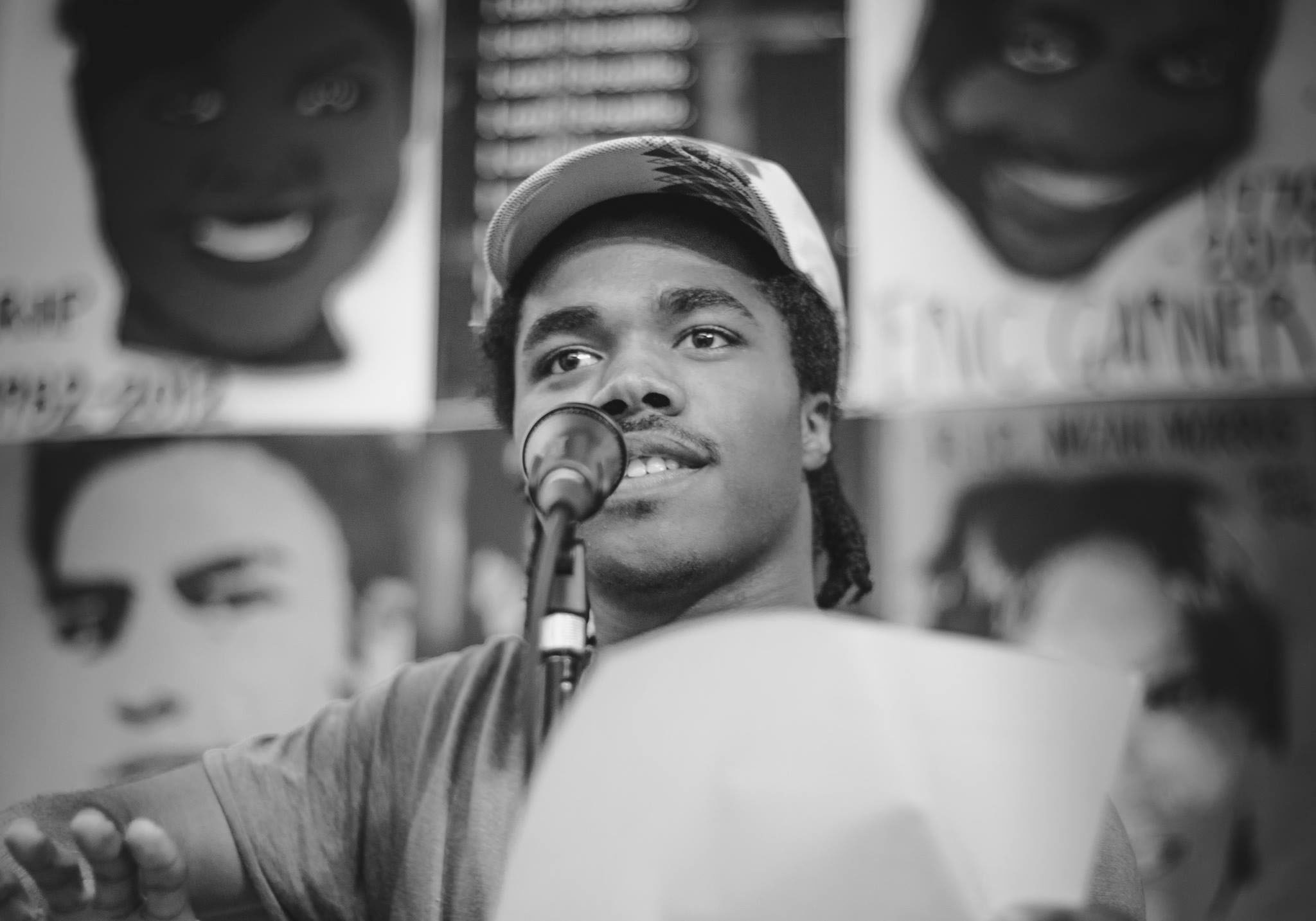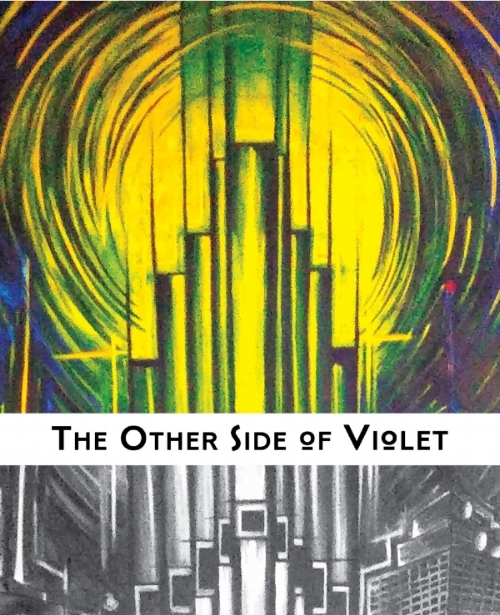NKOSI NKULULEKO IN CONVERSATION WITH THOMAS FUCALORO
Nkosi Nkululeko is a Callaloo fellow and a finalist for the 2016 Winter Tangerine Awards for Poetry. He was featured on TEDxNewYork and his work can be found in No Token, VINYL, PANK, the great weather for MEDIA anthologies Before Passing and The Other Side of Violet, plus many other publications. Nkosi lives in Harlem, New York City.
“Shout out to the women who’ve sung for me. I am a man with many songs but sing none.”
Thomas Fucaloro: Your poem "Acknowledgements" - published in our recent anthology The Other Side of Violet - has a fantastic juxtaposition happening with all the "shout outs" and what they really evoke. What inspired you to write this piece? Do you feel like you succeeded with what you were trying to do with it?
Nkosi Nkululeko: One of the main ideas for this piece was to have the reader reconsider what is considered poetry. The acknowledgement section, table of contents, bios, copyright page, bibliographies; they are a skeleton of content, upholding "the project." But why look only at the "content" for artistic use, why not look at the fringes of a collected for inspiration? There are other artists and writers that have played with this idea, I believe. So, I'm just continuing that conversation. This is all relating to the purpose of the title. The poem, itself, deviates the title's intention and is more of a praise poem (in my eyes) that attempts to utilize the form of the acknowledgment page to share my thoughts on what should or wouldn't normally be praised or acknowledged.
TF: I love the line "The 5 a.m. mornings where my city is no longer mine but belongs to the cool breeze that sweeps the easy blood off the ground." How do you build your lines, is it a scaffolding process? Do they just come out or does editing have a lot to do with it?
NN: Thank you for enjoying the line. I execute, as well as I can, the lines that push the story or form forward. Most of my poems are prompted by an idea and then I'll free-write a few variations, grabbing onto the pieces that are instructive on the poem's desired arrangement. In the midst of that creation, however, I do happen upon inspiration. At these moments of accidental epiphanies, they are welcomed - and then I hope they work.
TF: You are a 2017 Poets House Fellow, how was that experience for you? Do you feel like it sharpened your pen as a poet? Did it also help guide you among the business aspects of poetry as well?
NN: The fellowship was an incredible experience. My cohort, and our facilitator, R Erica Doyle, really opened a new eye to the meaning of dedication, business, practice, and just living in the world as a poet. I feel that I was shown how to be my own teacher of process while also learning from the community around me. I continue that journey, so it feels like the fellowship has never really come to a close. I reflect on the experience often, which has me look forward often.
TF: I know this is a bit of a loaded question but when you see the state of poetry today, how do you find your place in it?
NN: As much as I can, I try to reject the notion of place. Artistic fluidity is something I'm interested in (obsessed tbh), and this inspires me to apply the process and theory of any one of the crafts I study, to another. The product of this experimentation is most intriguing to me. The willingness to fall out of place, as scary and distorting as it may be, is what excites me and the work I strive to create.
TF: Finally, what's next for you?
NN: Writing toward a potential chapbook, but other than that, just study and practice.
Nkosi's poem "Acknowledgements" can be found in The Other Side of Violet.


